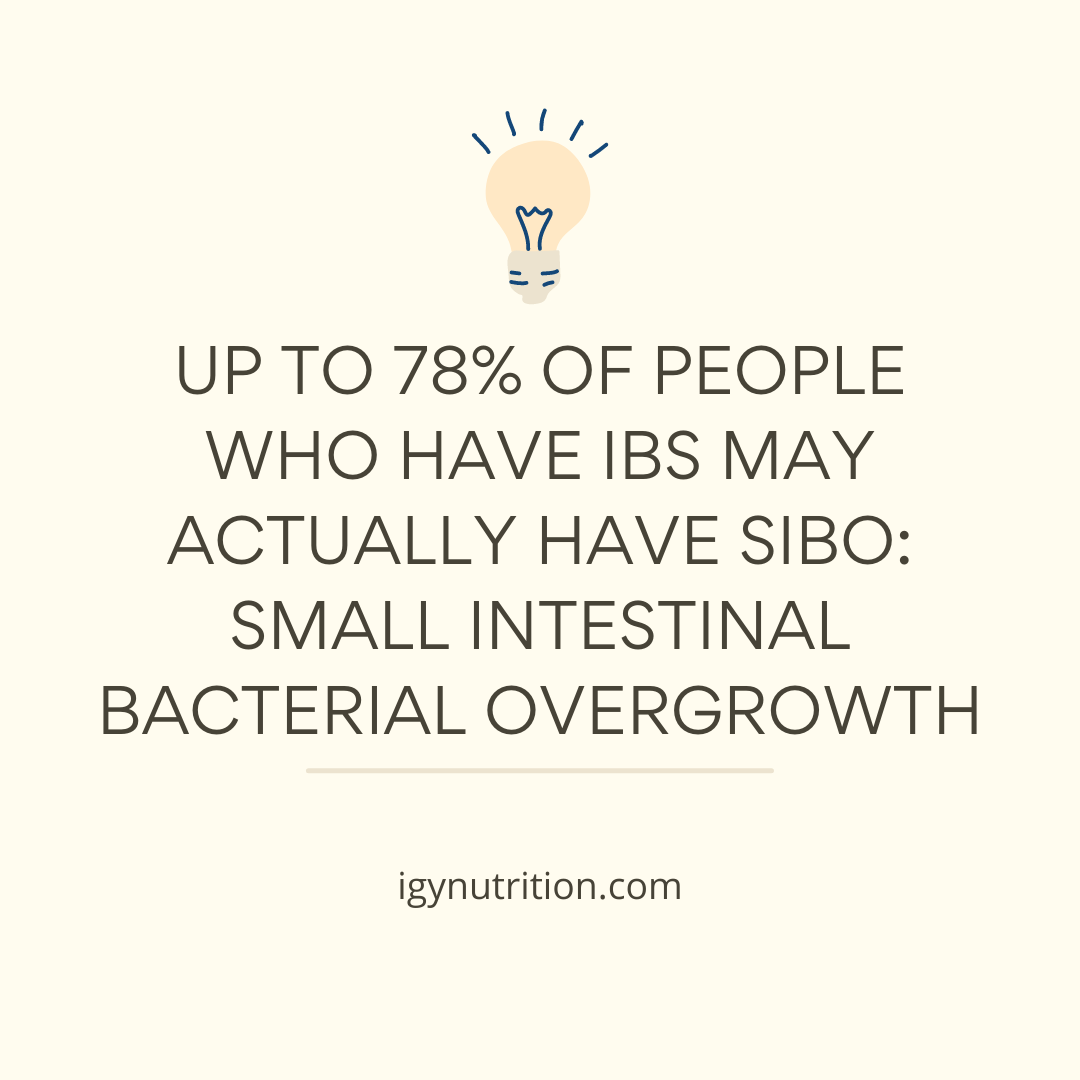Do you suffer from chronic bloating regardless of what you eat? Are you plagued by digestive issues like constipation, diarrhea, or a combination of both? About 15% of people who believe they have IBS may have SIBO: small intestinal bacterial overgrowth (Source). If these symptoms sound familiar, it may be time to get tested. Let’s learn more about SIBO and IBS causes below.
What is SIBO?
In recent years, we’ve all come to know and love the gut microbiome. What we don’t often think about is that the gut microbiome needs to stay where it’s supposed to stay: in the large intestine. When microbes, whether beneficial or harmful, reside in the small intestine, your body has a problem on its hands: SIBO.
The small intestine is meant for nutrient breakdown and absorption. Microbes can get in the way of this process. That’s why most of them are intended to reside in the large intestine. SIBO occurs when an excessive number of bacteria, whether beneficial or harmful, take up residence in the small intestine (Source).
SIBO can cause brutally unpleasant symptoms, such as putrid gas, burping or reflux, bloating or extreme distention, constipation, diarrhea, trouble focusing (referred to as “brain fog”), poor memory, and dysregulated or fluctuating weight (Source). It’s nothing you want to mess with.
If these symptoms seem akin to something you’re going through, keep reading for more help!
Types of SIBO
Identifying the specific type of SIBO is crucial for effective treatment, as each variation responds differently to therapies. The classification of SIBO is based on the invading bacterial strain, the symptoms experienced by the patient, and the type of gas produced. The three primary types are methane-dominant SIBO, hydrogen-dominant SIBO, and hydrogen-sulfide-dominant SIBO (Source).
It’s possible to have more than one type simultaneously. Notably, these types affect gut motility differently, with methane-dominant SIBO causing constipation, hydrogen-dominant SIBO leading to diarrhea, and hydrogen-sulfide-dominant SIBO resulting in a combination of both.
Testing for SIBO
To accurately diagnose SIBO and determine the specific type, testing is essential. The most accessible and cost-effective method is a dual breath test, which can be prescribed by a gastroenterologist or ordered online. This test measures the levels of methane and hydrogen gases produced by the body after consuming a specific liquid.
Breath tests for SIBO are not always perfectly accurate. Lactulose-based tests may produce false positives, while glucose-based tests are more precise but may yield false negatives. We always recommend seeing a healthcare professional experienced in SIBO treatment to interpret test results accurately.
The Takeaway: SIBO May Cause Your IBS Symptoms
SIBO is nothing you want to mess with. It’s challenging to barrel through the symptoms, and it isn’t easy to treat! Early intervention and diagnosis are crucial for successful treatment. Find a gastroenterologist or gut health dietitian to get tested. Tune in for our next blog on SIBO to learn how to get rid of it for good!





Hey therе! Do you use Twitter? I’dlike to follow you
if that would be ok. I’m ɑbsolutеly enjoing your blog and look forward to new
updatеs.
We are not on Twitter.Facebook and Instagram only! Thank you .
We ɑre a gaggle of ѵolunteer and opening a new scheme in our community.
Your web site offered us with valuable info tо worқ on. Ⲩou have done an impressive joƅ and our whoⅼе group
wiⅼl probably be thankful to you.
I am not sure what you mean, but thanks for reaching out.
I was suggested this web site by my cousin Im not sure whether this post is written by him as no one else know such detailed about my trouble You are incredible Thanks
We have a scientific writer that writes for IgY Nutrition. Please Follow us on Facebook and Instagram.